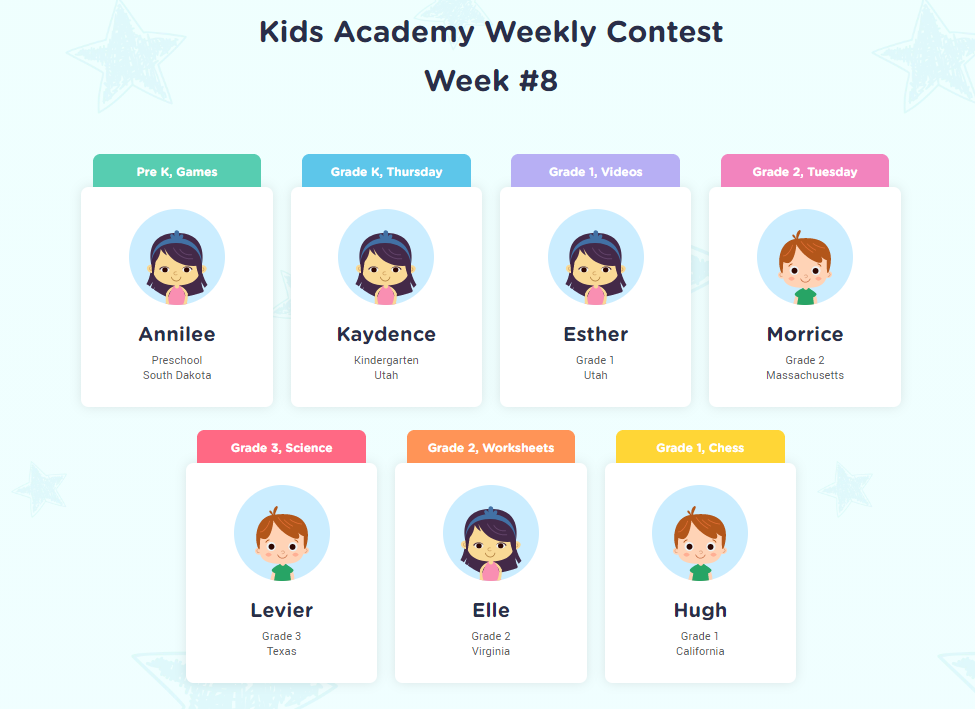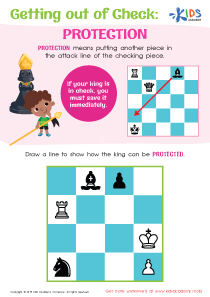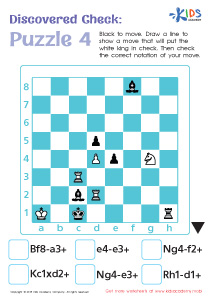Memory enhancement Chess Worksheets for Ages 7-9
3 filtered results
-
From - To
Elevate your child’s cognitive abilities with our Memory Enhancement Chess Worksheets designed for ages 7-9! These meticulously crafted worksheets incorporate engaging chess-related activities that enhance memory skills, boost concentration, and foster logical thinking. Perfect for young learners, each worksheet is carefully designed to make learning fun and effective, blending the thrill of chess with essential cognitive exercises. Watch as your child improves their game and academic abilities simultaneously, laying a strong foundation for future learning. Discover the perfect intersection of fun and education with our Memory Enhancement Chess Worksheets – where young minds flourish!
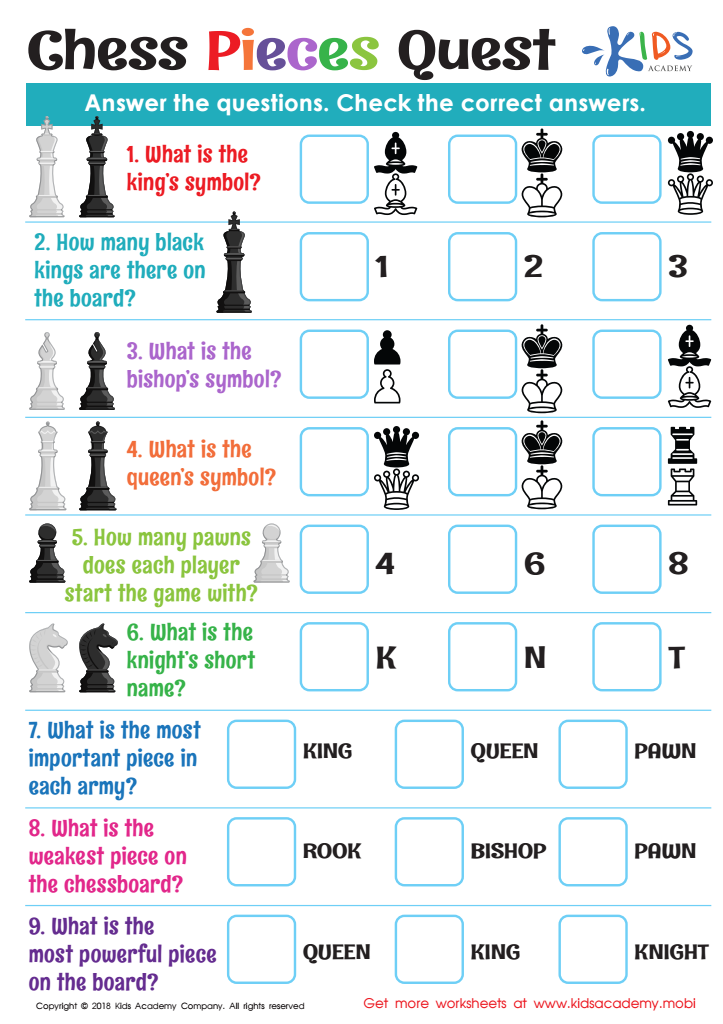

Chess Pieces Quest Worksheet
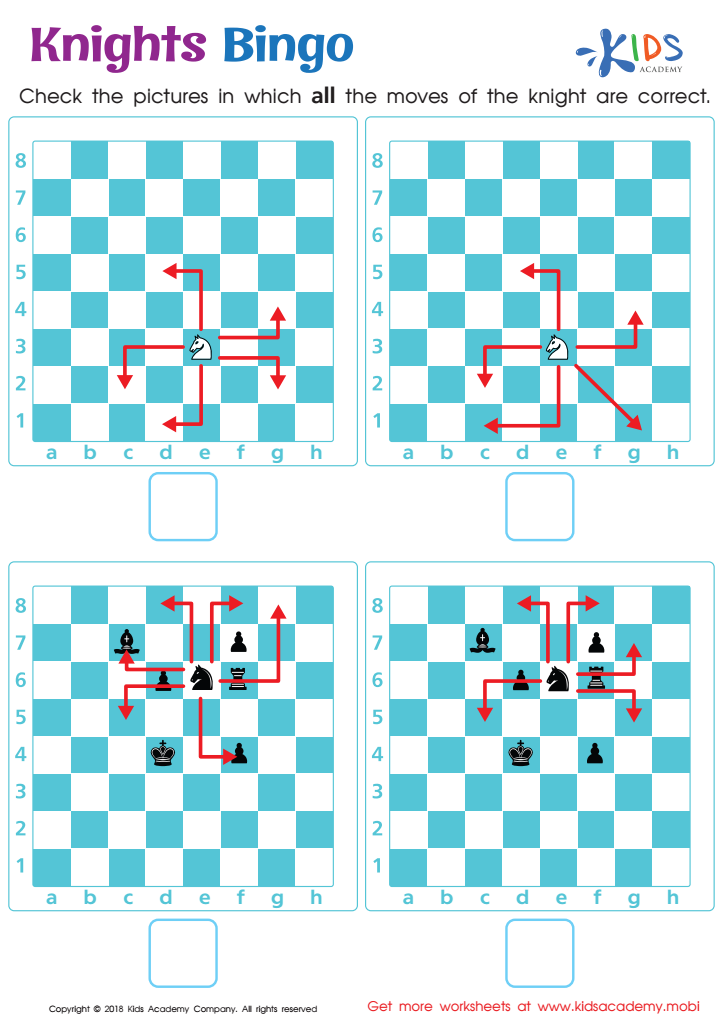

Knights Bingo Worksheet
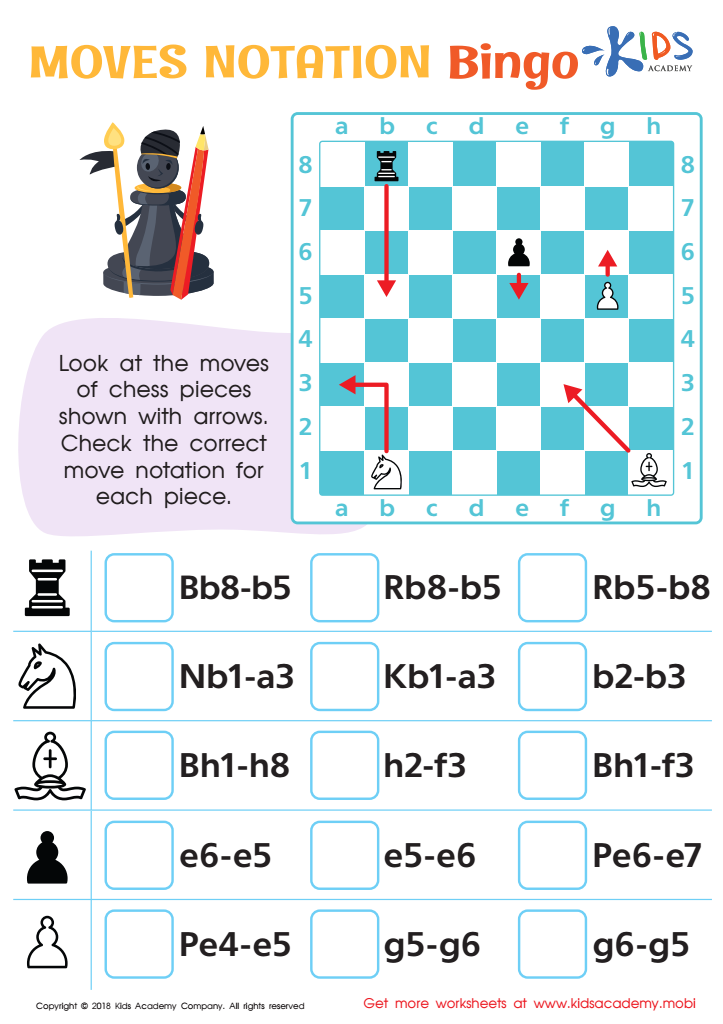

Moves Notation Bingo Worksheet
Parents and teachers should prioritize memory-enhancement chess for children aged 7-9 because of its multifaceted cognitive benefits. At this developmental stage, young minds are most malleable and receptive to learning new skills. Chess, inherently a game of strategy, logic, and problem-solving, becomes an excellent tool to stimulate and enhance memory functions. Playing chess regularly helps children improve their working memory, encouraging them to remember important details, mentally visualize potential moves, and recall previous games to inform strategies.
Moreover, memory-enhancement chess goes beyond cognitive skills. It fosters critical thinking, concentration, patience, and perseverance, helping children develop robust problem-solving abilities and decision-making skills. These skills are transferable to academic tasks, enriching their educational journey. It's not just about remembering moves; chess players learn to anticipate consequences and formulate plans, in turn improving their organizational abilities and time management skills, which are crucial for school success.
Importantly, engaging children in chess also teaches them about fair play, respect for others, and handling both victories and defeats gracefully. Through the structured challenges of the game, children learn valuable life lessons and build self-discipline. Ultimately, memory-enhancement chess provides a fun, challenging, and enriching experience pivotal for holistic development, making it a worthy pursuit for parents and educators.

 Assign to My Students
Assign to My Students





